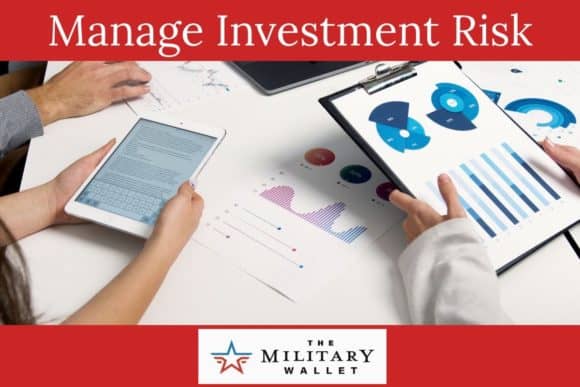Disclosure: This article is sponsored by Navy Mutual.
Gone are the days when a good retirement strategy involved nothing more than a simple savings account. If you are to have enough money to retire comfortably – and experts say that you will need 70–80% of your pre-retirement earnings each year to do so – then you need to start early, save as much as you can, and take a little risk.
Investing your hard-earned money may feel terrifying. There is always the chance that the market could perform poorly, and you could lose money. On the upside, though, the opposite is also true. To reduce the risk that you assume when you invest for retirement, there are a few strategies that can help.
Diversification
When it comes to setting yourself up for success in retirement, diversification is important. Diversification can be used to reduce both inflation risk (the risk that inflation could outpace the rate of return on your investments) and business risk (the risk that a company will not earn profits or fail entirely).
Diversification involves investing money in several different investments as opposed to a single investment (e.g., investing in stocks X, Y, and Z instead of only stock X).
The idea is that if some investments do not perform well, they will be offset by other investments that do. Buying into mutual funds or index funds, composed of a broad portfolio of companies from different economic sectors, is one way to diversify your retirement investments.
Asset Allocation
Asset allocation helps mitigate multiple types of risk by diversifying a portfolio among several different asset classes – meaning various types of investments, like stocks, bonds, CDs, annuities, real estate, etc.
Different asset classes inherently have differing levels of risk.
Stocks are subject to the market and therefore are considered particularly risky. CDs are considered safer investments, but they are susceptible to inflation risk.
One common asset allocation strategy is to invest more in safer investments, such as bonds and annuities, the closer you get to retirement. This approach decreases your exposure to stocks and other risky investment types to help protect your nest egg.
Dollar-Cost Averaging
Dollar-cost averaging is a technique used to reduce market risk, but (as with all risk management techniques), it does not guarantee that you will see a return on investments or that you will be protected from loss in declining markets.
It involves contributing a set amount every month – or two months or six weeks, whatever frequency you decide – to a stock or mutual fund instead of saving a lump sum outside of the market and then making your purchases all at one time.
This strategy will result in the purchase of more shares of the investment when the price is lower and fewer shares when the price is higher and may result in an average cost per share that is lower than the average price over the same amount of time. Dollar-cost averaging works to reduce the impact of a volatile market by spreading out your purchases at different price points.
Modern Portfolio Theory
Many investment strategies are based on Modern Portfolio Theory, which is a term used to describe a body of knowledge developed in the 1950s that is used by companies that manage funds to create optimal investment portfolios that reduce risk while enhancing returns.
Essentially, a computer program “runs the numbers” and alerts investment managers as to whether returns are appropriate for a given amount of risk exposure. This helps them construct a portfolio that will maximize your returns given a certain level of risk – or minimizes risk for an expected level of returns.
Investment Risk Can Be Managed
However you decide to save for retirement, it’s important to note that you cannot avoid risk completely. What strategy or strategies you should use depends on your overall asset level, age and time horizons, and risk tolerance.
Doing what you can to invest prudently – because there are always going to be daily, monthly, and yearly ups and downs in the market – should help you enjoy your retirement. The ideal time to plan for retirement was yesterday, but the next best time is now.
Navy Mutual is here to help. Use our Retirement Savings Calculator to find out how much you may need to save for retirement. To learn whether an annuity may make sense for you as part of your retirement strategy, schedule an appointment with a representative here, or email us at [email protected].




About the comments on this site:
These responses are not provided or commissioned by the bank advertiser. Responses have not been reviewed, approved or otherwise endorsed by the bank advertiser. It is not the bank advertiser’s responsibility to ensure all posts and/or questions are answered.